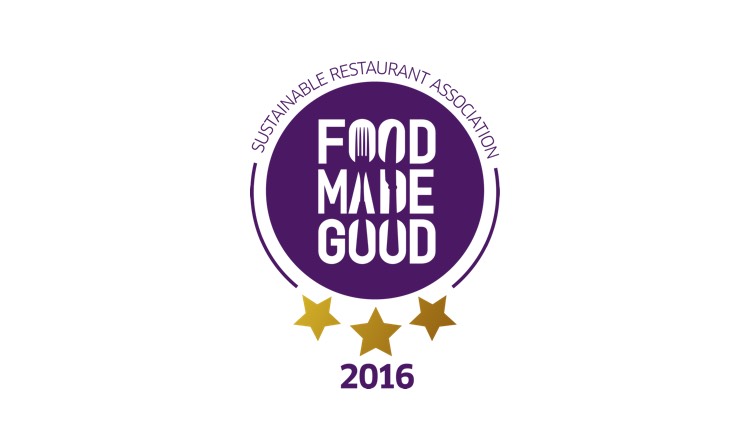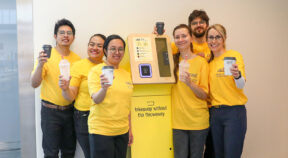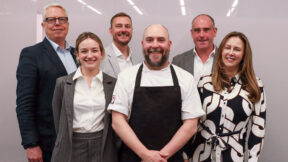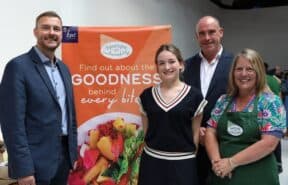News
Working in partnership to achieve sustainable catering

Sustainability is undoubtedly one of the buzzwords of the decade and most Facilities Managers today consider it when they are making major operational or investment decisions about their buildings. Of course, it makes sense from an environmental and societal perspective and it increasingly makes sense financially too, but some areas are complex to improve, such as catering. Boutique caterer, bartlett mitchell, and the SRA (Sustainable Restaurant Association) are two organisations that have been working hard to improve the sustainability of workplace catering.
Working with experts
For many companies, knowing where to start on their sustainability journey is one of the biggest challenges and bartlett mitchell knew that they needed specialist and practical guidance on improving sustainability. Luckily for them, the SRA could provide this. The SRA is a not-for-profit organisation that was established in 2010 and it states “sustainability is about a business managing not only the financial but also the social and environmental impact of its operations. By taking sustainable action, restaurants can make a huge difference on issues such as climate change, animal welfare and food waste”.
The SRA is an impressive source of knowledge and advice for companies to tap into. Businesses that choose to work with them on achieving a sustainability rating will not only increase their knowledge of the subject but also quickly identify practical actions to take.
The SRA promotes three principal Pillars of Sustainability – Sourcing, Environment and Society. Each Pillar is broken down into 5 separate areas each for the first two pillars, and four for the latter – 14 areas in total. Each of these 14 areas must be reviewed and considered. For example, under Sourcing, the areas of Environmentally Positive Farming, Local & Seasonal, Sustainable Fish, Ethical Meat & Dairy, and Fairtrade are covered.
Start with small steps
Contract caterers generally don’t control all the elements they impact on because they provide catering services in other companies’ premises and therefore, they are less in charge of their own destinies. They rarely decide on or purchase key elements that go into the operation such as restaurant furnishings, kitchen equipment, utility services, waste disposal, etc. Their clients, who are outsourcing their catering, rely on the caterer’s own policies to ensure that their systems and processes are sustainable. The result of this is that for best results, it makes sense for contractors and their clients to work together to achieve mutual sustainability objectives.
Sally Grimes is Quality Mentor for bartlett mitchell and she worked with the SRA to identify the sustainability criteria that would work in the business catering sector. She explained, “When you start reviewing the sustainability of catering activities, it can be daunting. There are so many elements of a service that need to be reviewed – from the expected areas like local seasonal sourcing, energy consumption and waste to less expected areas like community involvement and team engagement. The important thing to understand is that you can’t do it all at once so break it down into bite-size chunks of quick wins, medium and long term goals and start ticking off your achievements on a regular basis. For us, sustainability is a business goal but we also have increasing numbers of clients who want to see evidence of our sustainability work.”
Quick wins and longer-term goals
“The best route is to start with simple tasks/quick wins to achieve first before moving on to the more time-consuming or complex areas. For example, in a kitchen, it is easy to separate waste streams to make it more visible and therefore manageable, but improving the energy efficiency of kitchen equipment may take longer to achieve because of capital budgets and the outstanding lifetime expectancy of equipment. In the meantime however, caterers can make changes to the way they use that equipment to maximise efficiency. Other easy steps could include switching from bottled to filtered water and using recyclable disposable packaging.”
According to Grimes, procurement can have one of the biggest impacts and again there can be quick wins. “We discovered that making procurement policies such as 80% of vegetables used being seasonal varieties from the UK, only using free range eggs or MSC-certified seafood were relatively easy decisions to make. However, sourcing new suppliers of local produce that meet the necessary due diligence and quality standards took longer to achieve. From a procurement perspective, the SRA has also helped. They have an ever-expanding list of suppliers who are SRA-approved so by using them you are also helping your own sustainability credentials. We now specify that all new suppliers to Bartlett Mitchell must be SRA-approved.”
Working closely with FM
Not all decisions will be for the caterer to make, so input and commitment from the facilities team to the sustainability process is essential. Waste management is one such decision area.
“Some of our sites are in city centre locations with very limited waste storage facilities so we have to work with building management to find the most effective way. Through the SRA’s connections, we work with WRAP and HaFsa to identify ways to reduce waste streams in the short, medium and long term. We have many options available ranging from waste food and oil collection to onsite composting and recycling; waste for incineration/power stations to some sites where they even have wormeries.”
“We also separate and measure our waste and it’s led to some big reductions. The SRA estimates that if the average restaurant reduces waste by 20%, they would save £2-4,000 per year. There are not many businesses that would want to turn down those sort of savings.”
The following article appeared in www.tomorrowsfm.com and the whole article can be read here





